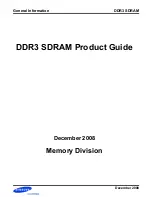
4
Set a maximum rate at which the RPM processes BPDUs for L2PT.
VLAN STACKING mode
protocol-tunnel rate-limit
The default is: no rate limiting.
The range is from 64 to 320 kbps.
Debugging Layer 2 Protocol Tunneling
To debug Layer 2 protocol tunneling, use the following command.
•
Display debugging information for L2PT.
EXEC Privilege mode
debug protocol-tunnel
Provider Backbone Bridging
IEEE 802.1ad—Provider Bridges amends 802.1Q—Virtual Bridged Local Area Networks so that service providers can use 802.1Q
architecture to offer separate VLANs to customers with no coordination between customers, and minimal coordination between customers
and the provider.
802.1ad specifies that provider bridges operating spanning tree use a reserved destination MAC address called the Provider Bridge Group
Address, 01-80-C2-00-00-08, to exchange BPDUs instead of the Bridge Group Address, 01-80-C2-00-00-00, originally specified in 802.1Q.
Only bridges in the service provider network use this destination MAC address so these bridges treat BPDUs originating from the customer
network as normal data frames, rather than consuming them.
The same is true for GARP VLAN registration protocol (GVRP). 802.1ad specifies that provider bridges participating in GVRP use a
reserved destination MAC address called the Provider Bridge GVRP Address, 01-80-C2-00-00-0D, to exchange GARP PDUs instead of the
GVRP Address, 01-80-C2-00-00-21, specified in 802.1Q. Only bridges in the service provider network use this destination MAC address so
these bridges treat GARP PDUs originating from the customer network as normal data frames, rather than consuming them.
Provider backbone bridging through IEEE 802.1ad eliminates the need for tunneling BPDUs with L2PT and increases the reliability of
provider bridge networks as the network core need only learn the MAC addresses of core switches, as opposed to all MAC addresses
received from attached customer devices.
•
Use the Provider Bridge Group address as the destination MAC address in BPDUs. The xstp keyword applies this functionality to STP,
RSTP, and MSTP; this functionality is not available for PVST+.
CONFIGURATION Mode
bpdu-destination-mac-address [xstp | gvrp] provider-bridge-group
Service Provider Bridging
851
Summary of Contents for S4048T-ON
Page 1: ...Dell Configuration Guide for the S4048 ON System 9 11 2 1 ...
Page 148: ...Figure 10 BFD Three Way Handshake State Changes 148 Bidirectional Forwarding Detection BFD ...
Page 251: ...Dell Control Plane Policing CoPP 251 ...
Page 363: ... RPM Synchronization GARP VLAN Registration Protocol GVRP 363 ...
Page 511: ...Figure 64 Inspecting the LAG Configuration Link Aggregation Control Protocol LACP 511 ...
Page 558: ...Figure 84 Configuring Interfaces for MSDP 558 Multicast Source Discovery Protocol MSDP ...
Page 559: ...Figure 85 Configuring OSPF and BGP for MSDP Multicast Source Discovery Protocol MSDP 559 ...
Page 564: ...Figure 88 MSDP Default Peer Scenario 2 564 Multicast Source Discovery Protocol MSDP ...
Page 565: ...Figure 89 MSDP Default Peer Scenario 3 Multicast Source Discovery Protocol MSDP 565 ...
Page 841: ...Figure 115 Single and Double Tag TPID Match Service Provider Bridging 841 ...
Page 842: ...Figure 116 Single and Double Tag First byte TPID Match 842 Service Provider Bridging ...
















































